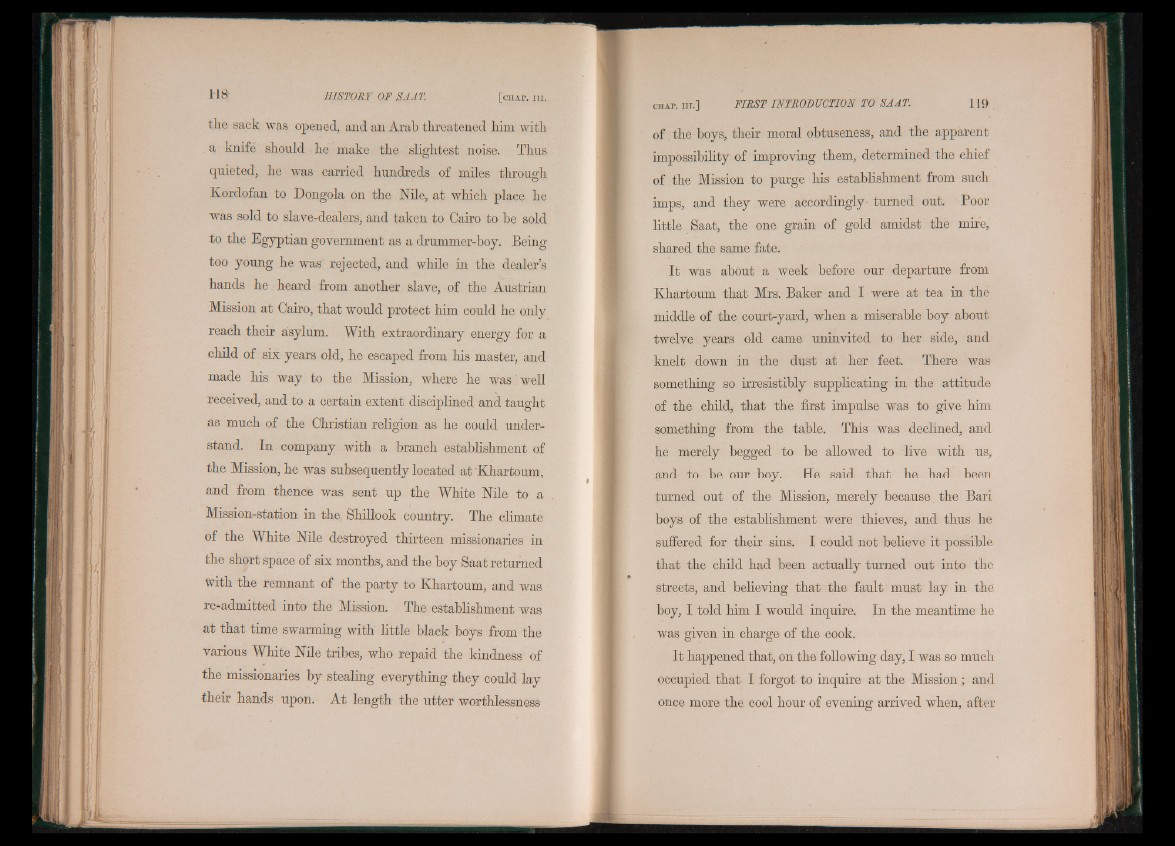
118 HISTORY OF SAAT. [ c h a p . i n .
the sack was opened, and an Arab threatened him with
a knife should he make the slightest noise. Thus
quieted, he was carried hundreds of miles through
Kordofan to Dongola on the Nile, at which place he
was sold to slave-dealers, and taken to Cairo to be sold
to the Egyptian government as a drummer-boy. Being
too young he was rejected, and while in the dealer’s
hands he heard from another slave, of the Austrian
Mission at Cairo, that would protect him could he only
reach their asylum. With extraordinary energy for a
child of six years old, he escaped from his master, and
made his way to the Mission, where he was' well
received, and to a certain extent disciplined and taught
as much of the Christian religion as he could understand.
In company with a branch establishment of
the Mission, he was subsequently located at 'Khartoum,
and from thence was sent up the White Nile to a
Mission-station in the, Shillook country. The climate
of the White Nile destroyed thirteen missionaries in
the short space of six months, and the boy Saat returned
With the remnant of the party to Khartoum, and was
re-admitted into the Mission. The establishment was
at that time swarming with little black boys from the
various White Nile tribes, who repaid the kindness of
the missionaries by stealing everything they could lay
their hands upon. At length the utter worthlessness
c h a p . in.] FIRST INTRODUCTION TO SAAT. \ 19 .
of the boys, their moral obtuseness, and the apparent
impossibility of improving them, determined the chief
of the Mission to purge his establishment from such
imps, and they were accordingly- turned out. Poor
little Saat, the one grain of gold amidst the mire,
shared the same fate.
It was about a week before our departure from
Khartoum that Mrs. Baker and I were at tea in the
middle of the court-yard, when a miserable boy about
twelve years old came uninvited to her side, and
knelt down in the dust at her feet. There was
something so irresistibly supplicating in the attitude
of the child, that the first impulse was to give him
something from the table. This was declined, and
he merely begged to be allowed to live with us,
and to be our boy. He said that he had been
turned out of the Mission, merely because the Bari
boys of the establishment were thieves, and thus he
suffered for their sins. I could not believe it possible
that the child had been actually turned out into the
streets, and believing that the fault must lay in the
boy, I told him I would inquire. In the meantime he
was given in charge of the cook.
It happened that, on the following day, I was so much
occupied that I forgot to inquire at the Mission ; and
once more the cool hour of evening arrived when, after